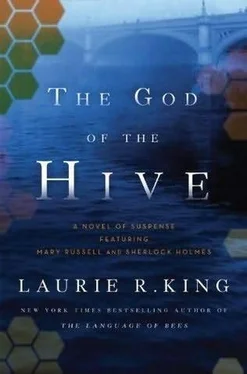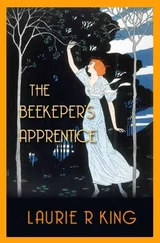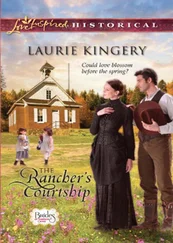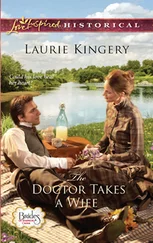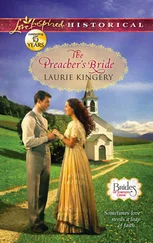Brothers be damned , I thought, and interrupted. “Did you send Mr Sosa away?”
“On Thursday, it must have been,” Holmes noted. “Once he’d brought you the morning papers.”
“And food. Yes, I sent him to the country with his mother, and had him get into touch with your Mrs Hudson and my own Mrs Cowper. We have a wide number of acquaintances at the moment who are taking in distant scenery.”
Poor Mrs Hudson, banished yet again for her own good. At least Dr Watson was out of it this time.
“We cannot afford any more hostages to fortune,” Holmes agreed.
“That was my thought. However, I had not suspected that Mr Sosa was made of such stern stuff. He returned to St James’s Square at mid-day on Thursday, where I had agreed to be available to him, were he to want me, and brought me a pair of Gladstone bags stuffed with edibles and the news. However, he was badly shaken: That morning he had decided that he could scarcely spend the day in the same shirt he had worn the day previous, and went home to pack a valise. There he found signs of a most expert break-in and the insinuation of several pieces of incriminating evidence amongst his things. He gathered his mother and fled; the two of them were in the mortuary van with her cat and canary. I gave him strict orders to abandon the stolen motor and take her away for at least two weeks. After the invasion of his home, I believe he will obey me. I only hope I can talk him into returning to my employ, once this is over.”
“Good,” Holmes said to his brother. “Tell me, what do you propose to do about your faceless opponent?”
“Now that I have you, I’d thought-”
“Wait,” I said. Damian was lodged in Holland somewhere and Javitz was protecting Estelle-but if our opponent was all-knowing, there remained one member of our party to consider: “Goodman.”
The man attached to that name gave a snort and sat upright on the divan, blinking against the light. I said, “That is your family’s estate, in Cumbria, where you live?”
“My… yes.”
“You could be traced from there?”
He shrugged, to indicate its remote possibility. I turned to Holmes.
“If our opponent has figured out who Goodman is, and if he’s desperate enough, he could use them-the family is away, fortunately, but the servants are there, and vulnerable.”
Goodman snorted again, this time a sound of derision. “That family? Were he sane, a threat to a mere servant would not bend a son of the family. But mad? One cannot manipulate a madman. No sensible man would try.”
With that, he turned over on the divan and went back to sleep.
We three looked at each other, and admitted the wisdom of the fool’s pronouncement.
“You were saying, Mycroft?” Holmes asked.
“I was saying, with your assistance, I believe we might revive the trap I had been constructing before Mr Brothers stumbled into our lives. There may be fewer of us than I had anticipated. However, I believe we can adapt it to our reduced numbers.”
The conversation that followed led us nearly to dawn, and the plan Mycroft laid and Holmes and I amended was a good one: simple, solid, and requiring little luck to succeed. Our opponent might not realise yet that Mycroft was alive, but he must be aware that Gunderson was missing. It was unfortunate that Mycroft had lacked the personal stamina, or the reliable manpower, to set watch over the warehouse. Nonetheless, the combination of blood on the floor, bullets in the walls, and a broken sky-light would surely put the most phlegmatic of villains in a state of panic.
Mycroft need only walk in the door of his Whitehall office to send any rats scurrying for their holes. With me at the building’s telephone board and Holmes at its exit, one or the other would lead us to their source.
Before the sun rose behind the curtains that Monday morning, our plans were laid.
Mycroft stood, moving like an old man. Holmes and I were little better. I looked at the mantelpiece clock: nearly six.
“You will leave soon?” I asked Mycroft.
Holmes was frowning at his brother’s stiffness and spoke first. “The afternoon will suffice.”
“Really?” I dreaded to hear what other activity he had in mind. “So what now?”
“A few hours of sleep might be for the best.”
“Sleep, Holmes?” I exclaimed. “Do we do that?”
“As best we might, given the age of Mrs Melas’ beds.”
When we began to stir, Goodman woke and stretched full-length on the striped divan, looking remarkably like Estelle. Then he jumped to his feet.
“Unless you need me to guard the door or repel boarders, I’ll be gone for a bit. Shall I hang the picture back over the hole downstairs, on the chance someone wanders in?”
Holmes started to object, but I was more accustomed to Goodman’s habit of popping in and out of view, and told my long-time partner, “He knows the back entrance, he knows to take care that no one sees him use the hidden doors, he’ll be careful.”
“And I’ll bring a pint of milk,” Goodman said.
“But not an entire arm-load of groceries,” I ordered. “Nothing you can’t slip unseen into your pockets. We don’t want you to look like a delivery boy.”
He put on his straw hat and marched with jaunty steps to the kitchen. I had a sudden pang of doubt-we could be trapped here-but stifled it, and went to find a bed. It wanted airing, but a slight mustiness would not keep me from sleep.
I felt I had scarcely closed my eyes when a presence woke me. I forced an eye open, and saw green; blinked, and the green became an eye; pulled back my head, and Goodman came into view, his face inches from mine.
I sat sharply upright, glanced over, and found Holmes, incredibly, still asleep-who would have thought Goodman could enter this place without waking either of the brothers? When I turned back to my human alarum clock, my vision was obscured by an object that, when I had pushed it away sufficient to focus, proved to be a folded newspaper.
His other hand came around the side of the page, one finger pointing at the print. “Is this for you?”
I took the paper, and read:
THE BEEKEEPER wished in trade for the object of his affection central Bensbridge, alone, 2:30 am, reply acceptance in evening standard.
Robert Goodman sat on the rooftop, watching London rush to and fro between his dangling toes. The view was omniscient-in the theatre of the streets, his seat was in the gods. Which was only appropriate, considering the Person on whom he was meditating.
Are you frightened of anything?
Suffer the little children, to come unto me, because they will speak the truths only fools know. Oh, the Son of Man knew what he was talking about, that was for certain.
And the Son of Man did his own sitting on the heights, thinking on the morrow, wondering if he might not simply slip away and leave his friends to sort it out.
A simple child that lightly draws its breath / And feels its life in every limb; what should it know of death? Interesting, that the Bard of Avon had so few children in his writing while Wordsworth had so many. If Wordsworth had been a playwright forced to deal with actors, would he, too, have replaced children with sprites and fairies?
A simple child should know nothing of death, or fear, or hunger. But children did, all the time. Estelle Adler certainly did, poor mite-mother murdered, father hunted. But what was that to him?
An ambulance driver had responsibilities, but they were not those of an officer. A driver’s demands were immediate, clear-cut, and rode light upon the conscience: Men died, but if one had done one’s job, those deaths could be laid at the foot of someone else. Some officer.
Читать дальше
